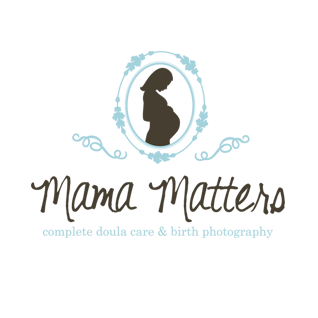Frequently Asked Questions About Doula Care

Offering Physical Comfort to a First-Time Mom
What Does a Doula Do?
Here are some explanations of the services a birth doula may provide.
Prenatal:
• Helps you write a birth plan
• Suggests (and possibly practices with you) labor positions, comfort measures
• Answers or helps the clients find the answers to questions
• Shares resources on pregnancy, childbirth, breastfeeding and other related topics
During Labor:
• Offers physical and emotional support throughout entire labor
• Communicates with other family member or friends the laboring mother’s wishes
• Helps the mother & partner understand any “technical language” the doctor or nurses may offer
• Supports the father by giving him breaks, and help enable him to participate in the birth to his comfort level
• Takes photos and video if wanted
Postpartum:
• Helps to review to birth, providing a safe “sounding board” for the mother/partner
• Helps with establishing breastfeeding (although I’m not a lactation consultant)
• Writes a birth story of the event
What a doula does not do.
• Replace the husband/partner’s role
• Provide clinical care such as performing vaginal examinations or monitoring fetal heart tones
• Make decisions for the mother and partner
What are the benefits of a doula?
Many studies confirm that when a doula is present…
Mothers are
• 50% less likely to have a cesarean birth
• 41% less likely to need forceps or vacuum extraction
• 28% less likely to need pain medication (like an epidural)
• Less likely to need their water broken artificially or have an episiotomy
• Less likely to experience anxiety in labor or postpartum depression
• More satisfied with their birth experience
• More likely to have faster labors
Babies are
• More likely to have shorter hospital stays with fewer admissions to special care nurseries
• More likely to breastfeed easier and longer
• Less likely to have a low APGAR score or experience decreased heart rate or labored respiration
My partner is wonderful and is a great support; why would I need a doula?
It is a treasure to have a wonderful partner! However, there are many reasons a doula might enhance your birth experience. The doula is there to help the partner and the mom stay on track. Also, having more than one set of hands to massage, soothe, or put counter-pressure s invaluable! The doula could run go get ice chips, a blanket, the camera, or a warm rice sock while your partner stays with you. Plus, the partner is emotionally involved in the birth process; this can possibly make it harder for the partner to process information and make objective decisions. The doula can help you understand your options, and help you to keep your birth as close to your ideal birth (or birth plan) as possible.
Your partner in most situations, will never have seen you experiencing something as intense at the labor and birth of the baby. The doula is there to be the one to tell you and assure your partner that what you are going through is normal, and that every contraction is a good sign and that it means your body is doing what it is supposed to do.
I am going to have an epidural, can a doula still help me?
A doula can be useful in any kind of birth, from the home water birth to the medicated hospital birth to the planned induction or even cesarean birth.
Typically, the hospital will wait until the mom is in active labor (normally around 3-5 cm dilation) to get an epidural. A doula can help them through that period, as well as the 20-30 minutes it takes to get the epidural in and functioning. Also, it is not uncommon for the epidural to not work, or only work on one side, or have other unexpected physical responses. A doula can help a family cope with that as well. When it comes time to push baby out, it’s hard work, and the doula can help with that also. Also, sometimes, when an epidural is given, the hospital staff and even loved ones pay more attention to the monitor than to you. You will still need strong emotional support and information. The mechanics of labor and delivery don’t stop when the epidural is placed. The doula can help you feel connected to your body and your baby even though you may not physically feel what is happening.
I have a midwife. Do I still need a doula?
There are some wonderful midwives around the Tyler, TX and East Texas area! I love to work with them! The roles of midwife and doula are complementary. The couple having a doula has one- on- one care from someone knowledgeable about birth who can help the Mother-to-be when the midwife is not present. As in a hospital birth, when the nurse and doctor can’t be there your doula is always with you. At a home birth, the midwife may be focusing on the clinical matters of the labor and birth, while your doula is there just for your support alone.




